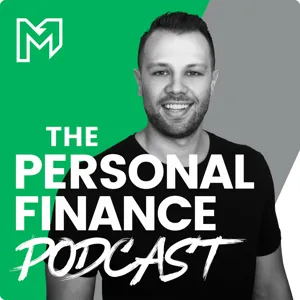Podcast Summary
Preparing for potential job losses and inflation: Considering financial situation, cutting non-essential expenses, and building emergency funds during economic uncertainty
The economic uncertainty brought about by potential job losses and inflation is causing many individuals and families to carefully consider their expenses and savings. Brenton Taylor, who has experienced a layoff before, is currently preparing for the possibility of another one in the context of predicted recession. He and his family are cutting back on non-essential expenses and trying to build up their emergency fund. The fear and exhaustion of financial instability are emotions that many Americans can relate to, especially in the face of potential job losses and inflation. It's a reminder for all of us to consider our financial situation and be prepared for the unexpected.
Expected mild recession in 2023 as economic correction: Prepare for potential job insecurity, save, pay down debt, maintain an emergency fund, and stay informed about industry trends
Economists believe a mild recession is likely in 2023, following the unusual economic boom experienced at the end of 2020 and 2021. This recession is seen as a correction to the highs and a return to equilibrium. Despite some mixed signals in the economy, such as widespread layoffs and historically low unemployment, it's important to prepare for potential job insecurity and consider adjusting financial plans accordingly. Economists suggest focusing on savings, paying down debt, and maintaining an emergency fund. Additionally, keeping an eye on industry trends and considering career pivots can help individuals navigate any economic downturn. It's essential to stay informed and proactive during uncertain economic times.
Considering Job Stability Amid Economic Uncertainty: Amid economic uncertainty, consider the stability of potential jobs and be flexible with schedules and salary expectations. Watch out for rising credit card debt and consider transferring balances to 0% cards or negotiating with servicers.
As the potential recession looms, it's crucial for individuals to carefully consider the stability of the job they're pursuing. While some industries, like tech, may have offered attractive salaries and perks a few years ago, they now appear more vulnerable. On the other hand, blue collar jobs may be more stable. Additionally, the leverage employees had during the hiring frenzy has shifted back to employers, so workers may need to be more flexible with their schedules and salary expectations. Another concern is the rising credit card debt, which has increased by 13% on average since 2021, according to TransUnion. With interest rates rising sharply, any unpaid debt could become quite expensive. If you're carrying a significant credit card balance, consider transferring it to a 0% balance transfer card to avoid interest payments. If you can't qualify for that, contact your servicer for help. Remember, getting behind on student loan payments may be less detrimental than falling behind on mortgage or car payments, as it typically takes longer for servicers to pursue legal action.
Effective financial planning balances immediate needs and long-term goals: Secure emergency savings, prioritize retirement savings, consider housing as a long-term investment, and maintain cash reserves for unexpected income disruptions.
Effective financial planning requires balancing immediate needs with long-term goals. Prioritizing emergency savings is crucial, aiming for at least three months of income. After securing emergency funds, focus on retirement savings, even during economic uncertainty. Retiree Teresa Ghilarducci emphasizes the importance of consistent retirement savings, stating that contributing 5% of your salary for 40 years can significantly supplement your social security. For near-term investments, consider housing as a wealth-building opportunity, but ensure you can afford to hold onto it during market fluctuations. Los Angeles loan officer Arteen Babayan advises having cash reserves to weather potential income disruptions. For those facing potential layoffs, scheduling medical appointments and clarifying retirement account borrowing status are recommended actions.
Understanding 401k Loans and Layoffs: During a layoff, a 401k loan may be treated as a withdrawal, triggering full taxation. Job seekers should apply for unemployment, network on LinkedIn, and prioritize self-care.
If you have a 401k loan and get laid off, it's crucial to understand how the loan will be treated. Some employers offer a grace period, but if the balance isn't paid off, it will be considered a withdrawal, resulting in full taxation. Immediately filing for unemployment and sharing the news on professional networks like LinkedIn could help in finding the next job. Being respectful in these posts demonstrates character. It's important to remember there's no shame in being laid off and to take time for mental health during this challenging experience. Experts emphasize the significance of self-care, including seeking counseling if needed.






